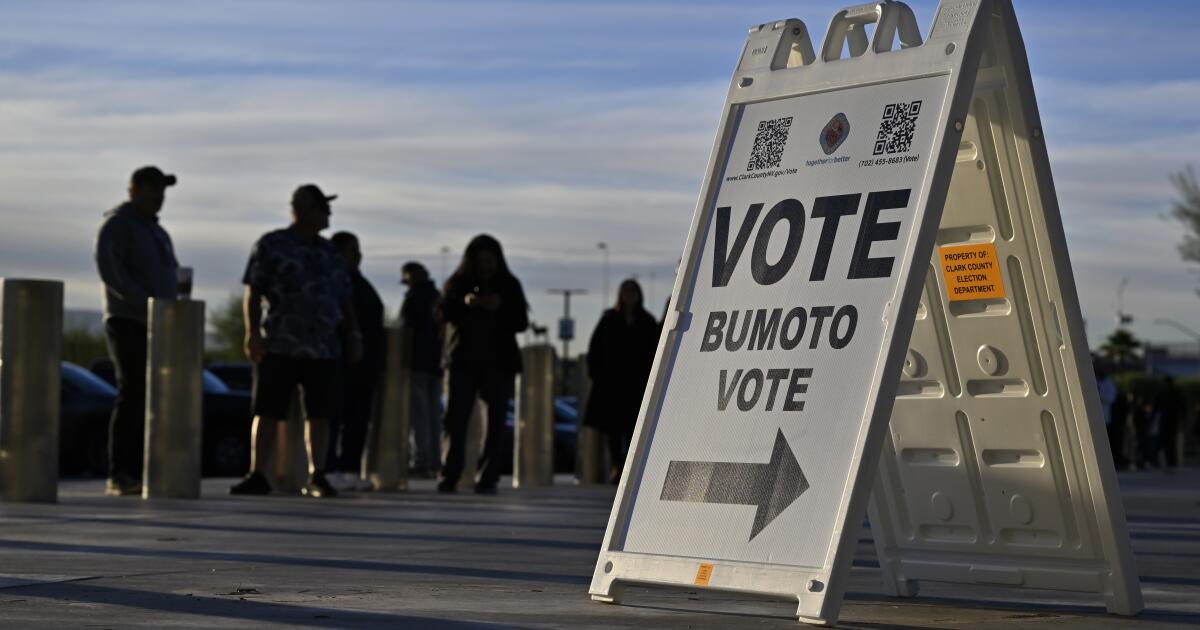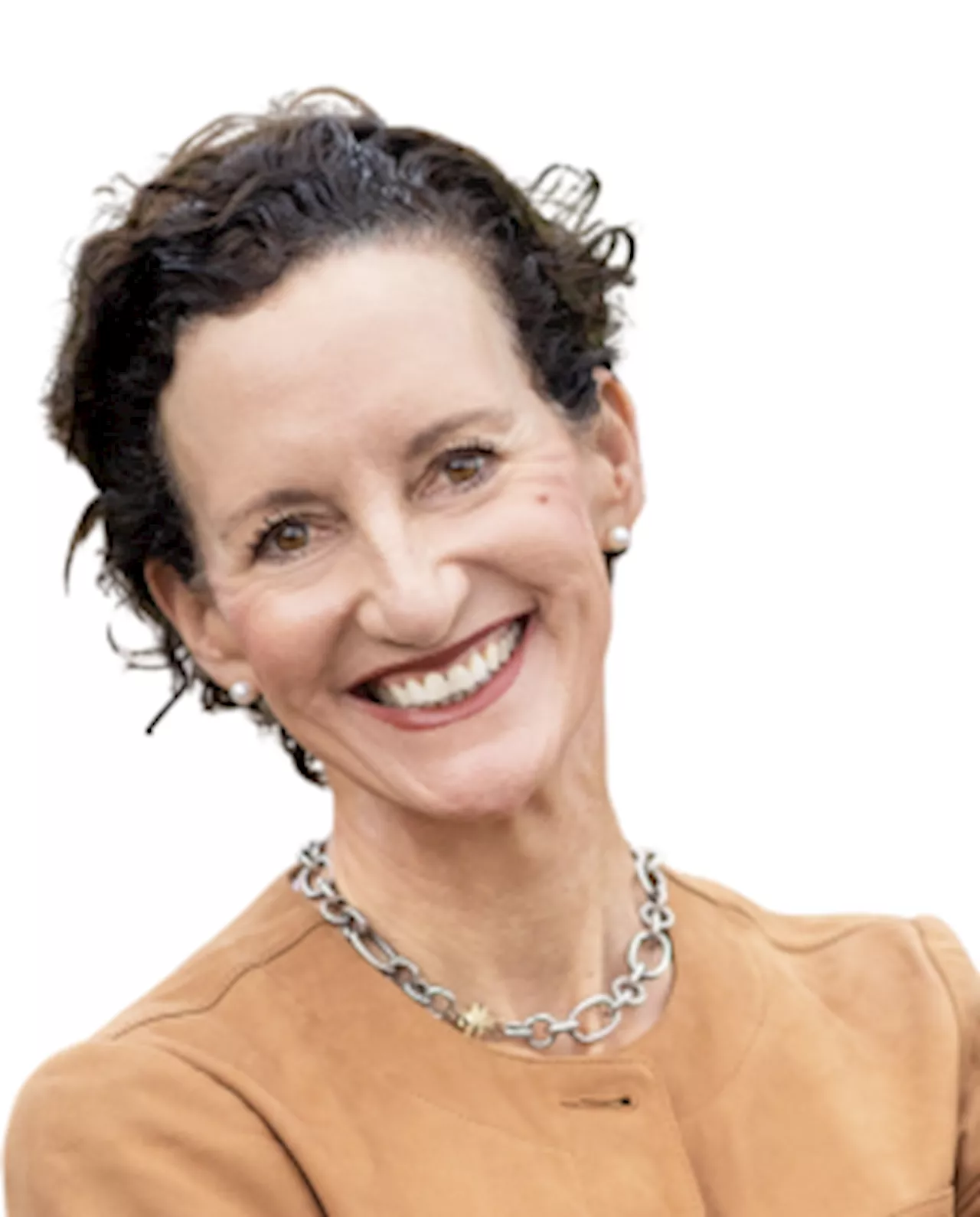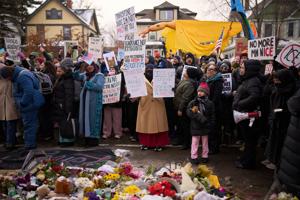Politics
Uncontested Elections Raise Concerns About Democracy’s Health

Voter participation in local elections is declining, raising alarms about the health of democracy in the United States. According to data from Ballotpedia, an organization that tracks election statistics, approximately 60% of nearly 14,000 elections monitored across 30 states this week were uncontested, meaning only one candidate was running for each position, or in some cases, there were no candidates at all. This lack of competition is particularly evident in local races, where over half of city council victories and nearly 80% of local judgeship outcomes occurred without opposition.
The focus of much of the recent analysis has been on the mayoral race in New York City, where Zohran Mamdani secured a significant victory. Yet, on the same night, more than 1,000 individuals were elected mayors without facing any opponents. Only about 700 mayoral races tracked provided voters with a choice. The trend has worsened over the past two years, with an average of 75% of the elections falling into the uncontested category, according to Ballotpedia’s findings since they began tracking this data in 2018.
The implications of this trend extend beyond mere numbers. Elections without political opposition threaten to diminish the essence of voting, transforming it into a mere formality rather than a genuine democratic process. Doug Kronaizl, a managing editor at Ballotpedia, emphasized the need for awareness around local elections, which often have a more direct impact on people’s lives. He noted that while national elections attract significant attention, the majority of elections occur at the local level, where voter turnout and competition have significantly declined.
In states like Iowa and Ohio, the lack of candidates is stark; Iowa reported 1,753 races with one or zero candidates, while Ohio exceeded 2,500 such races. In many instances, if an election is uncontested, ballots are not printed, effectively canceling the election process altogether. This situation highlights a troubling reality: while there are elected officials and voters, the absence of political opposition raises concerns about the vitality of democracy, particularly at the grassroots level.
Understanding the Causes of Political Disengagement
The rise in uncontested elections reflects a broader disengagement within the electorate, particularly at the local level. Neil Giuliano, former mayor of Tempe, Arizona, pointed out that potential candidates often consider three critical factors before running for office: the financial resources to campaign, the electoral math of winning, and the message they wish to convey to voters. He lamented that the focus has shifted from articulating a strong message to merely having the funds and data to target voters effectively.
Giuliano, who has chosen to mentor candidates rather than run for office himself, believes that many individuals hesitate to enter the political arena for various reasons. Some perceive these positions as inconsequential, while others feel overwhelmed by the current political climate, which can be hostile and divisive.
Amanda Litman, co-founder and president of the nonprofit organization Run for Something, echoed Giuliano’s sentiments, noting that since the election of former President Donald Trump, her organization has received over 200,000 inquiries from individuals interested in running for office. This surge suggests a potential resurgence of civic engagement, particularly among young progressives eager to address pressing issues like housing affordability.
The Importance of Political Opposition
The current climate poses challenges reminiscent of the early days of American democracy. In his work “The American Crisis,” Thomas Paine highlighted the significance of civic engagement and political opposition during troubling times. Today, the crisis stems not from foreign tyranny but from a lack of engagement at the local level.
While national media and campaign financing have historically shifted attention to high-profile races, the importance of local elections cannot be overstated. These races provide an opportunity for citizens to engage with their representatives and hold them accountable. When political opposition is absent, voters lack the means to express their dissatisfaction with the status quo, undermining the fundamental purpose of democracy.
Former Los Angeles Mayor Antonio Villaraigosa emphasized that democracy is a dynamic entity that requires active participation. He urged citizens to engage civically, whether by voting, understanding local issues, or even running for office when necessary. Villaraigosa’s perspective aligns with the notion that a robust democracy relies on the presence of elected officials, active voters, and, crucially, political opposition.
As the landscape of American democracy continues to evolve, the need for competitive elections remains essential. Without a diverse array of candidates representing various perspectives, the democratic process risks becoming stagnant, leaving many voters feeling disenfranchised. The time has come for communities to prioritize political engagement, ensuring that democracy serves its intended purpose: to represent the needs and voices of the people.
-

 Top Stories1 month ago
Top Stories1 month agoRachel Campos-Duffy Exits FOX Noticias; Andrea Linares Steps In
-

 Top Stories1 week ago
Top Stories1 week agoPiper Rockelle Shatters Record with $2.3M First Day on OnlyFans
-

 Top Stories6 days ago
Top Stories6 days agoMeta’s 2026 AI Policy Sparks Outrage Over Privacy Concerns
-

 Sports5 days ago
Sports5 days agoLeon Goretzka Considers Barcelona Move as Transfer Window Approaches
-

 Top Stories1 week ago
Top Stories1 week agoUrgent Update: Denver Fire Forces Mass Evacuations, 100+ Firefighters Battling Blaze
-

 Top Stories1 week ago
Top Stories1 week agoOnlyFans Creator Lily Phillips Reconnects with Faith in Rebaptism
-

 Top Stories5 days ago
Top Stories5 days agoWarnock Joins Buddhist Monks on Urgent 2,300-Mile Peace Walk
-

 Entertainment6 days ago
Entertainment6 days agoTom Brady Signals Disinterest in Alix Earle Over Privacy Concerns
-

 Top Stories7 days ago
Top Stories7 days agoOregon Pilot and Three Niece Die in Arizona Helicopter Crash
-

 Top Stories4 days ago
Top Stories4 days agoCBS Officially Renames Yellowstone Spin-off to Marshals
-

 Health2 months ago
Health2 months agoTerry Bradshaw Updates Fans on Health After Absence from FOX NFL Sunday
-

 Sports4 days ago
Sports4 days agoSouth Carolina Faces Arkansas in Key Women’s Basketball Clash




